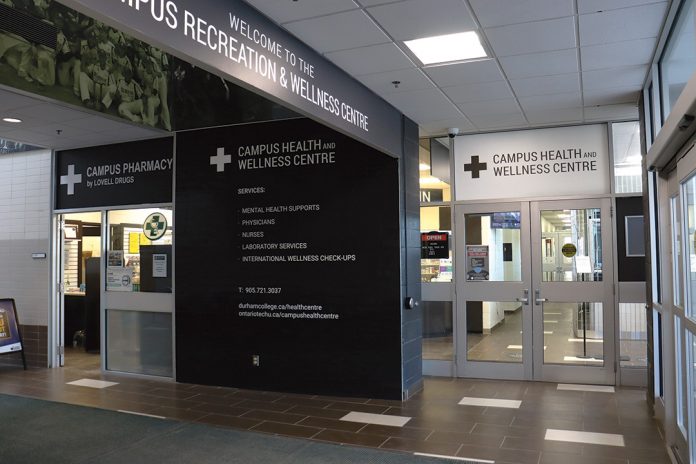Mental health concerns among Canadian post-secondary students continue to rise. Stress is a major contributing factor. A group of students from Durham College and Ontario Tech University partnered with the Campus Health and Wellness Centre to lead workshops to help combat this.
A 2022 report by the Canadian Alliance of Student Associations (CASA) found three in four students struggled with mental health during their studies. One in two students, according to the report, say they have used mental health services offered through their post-secondary institution. Sixty-eight per cent of students showed interest in general stress supports.
Four different art-based workshops focused on stress relief for students took place in March. These workshops provide a welcoming space for students to relax and build community. Each week throughout the month saw a different art project designed to help students destress and relax.
Aizlon Halliday, one of the student organizers, said they wanted the art projects to be something “tangible” and “personalized.”
The projects included painted plant pots, custom-designed tote bags, intricate mood mandalas and unique bracelets, which helped students slow down and focus only on what was in front of them.
The idea for these workshops came after doing a recovery college survey, asking students what resources or activities they wanted to see on campus.
“We just really tried to identify what students’ needs were,” said Halliday who added that students wanted a calm and safe space to do different art or recreational activities and decompress.
Another student organizer, Nicole Bisschop, said she hopes students use these workshops as a stepping stone in practicing self-care.
“They really learn to prioritize their self-care to engage in more fun activities, kind of connecting back to their inner child, those fun activities you used to do,” she said.
These art workshops are beneficial for some students but not all. Bisschop said students need to find a method that works for them.
“Finding a hobby that you really connect to. Something that you can get away from the academics, meet new people,” she said, adding that campus clubs are a good way to do that.
A 2024 article by University of Calgary academic developers, Patti Dyjur and Jaclyn Carter, outlined that the basics, like eating and sleeping right, can lower stress, but also that students need to find their own way to lower stress.
Dyjur and Carter claim students need to make time for themselves and protect it. Any form of self-care will help students relieve stress.
The authors outlined some ideas that could be included in a self-care plan, including physical activity, participating in campus clubs, meditation or yoga and hobbies like drawing, reading or watching a favourite show or movie.
As the semester comes to a close, Halliday and Bisschop hope initiatives like the stress relief workshop series will help students take steps toward prioritizing their well-being. While stress is an inevitable part of student life, finding ways to manage it can make all the difference.
For students looking for additional support, both Ontario Tech University and Durham College offer various wellness services, from counselling to peer support groups. No one has to navigate stress alone.
As Halliday emphasizes, “The campus is here for you, we want to help you.”




